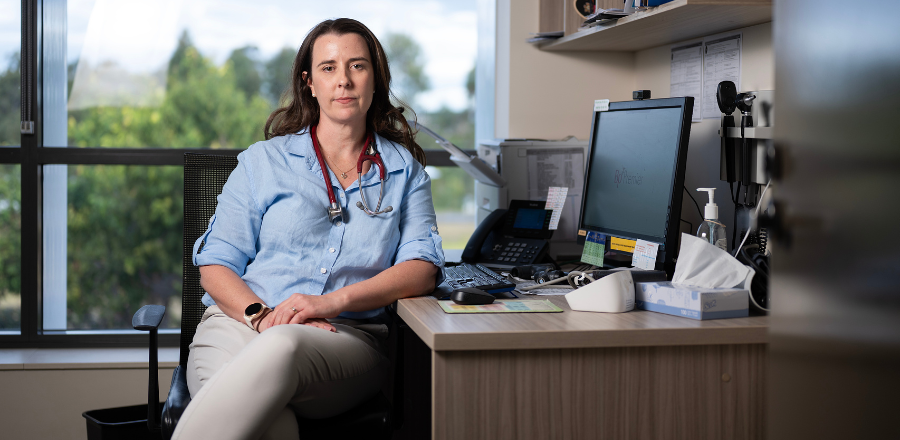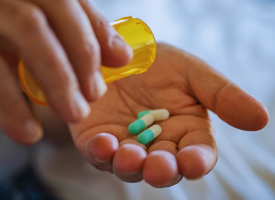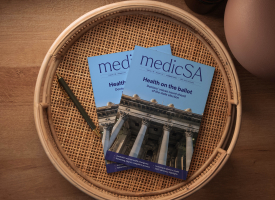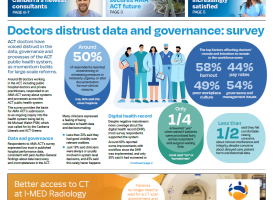Transcript AMA President Dr Danielle McMullen on ABC Radio Sydney Breakfast
Transcript: AMA President Dr Danielle McMullen on ABC Radio Sydney Breakfast

Subject: Paracetamol and autism
CRAIG REUCASSEL: It seems there's always new theories about the causes of autism, and the headlines today are all about claims by the US President, Donald Trump, suggesting that they're going to be showing what the cause is, and there has been leaks to suggest that this is going to be a suggested link between autism and use of paracetamol in pregnancy. It's a claim that most doctors reject and the Federal Health Minister, Mark Butler, has said he's seeking urgent advice on the claims. Let's hear from Dr Danielle McMullen, the President of the Australian Medical Association. Morning, Doctor.
DR DANIELLE McMULLEN: Good morning. Thanks for having me.
REUCASSEL: This supposed link that the President's going to be pointing to between paracetamol use in pregnancy and autism, is there any academic literature on this?
DR McMULLEN: I've just been watching the US President live this morning and he has indeed made quite strong claims that the use of paracetamol — or they call it acetaminophen, but Panadol — in pregnancy, he's claiming causes autism. Now, the weight of science is not that clear. I wish we had an answer for what causes autism for the many families out there who are struggling. But in fact, there's no study that shows that paracetamol is a cause. There are some studies that show what we call an association, but association doesn't mean cause. Basically, it's kind of survey-type data where families with children with autism may show a range of different things during pregnancy or otherwise, or genetics that may have contributed. And so paracetamol does flag up there sometimes, but it's certainly not causation. And so I think we've just got to be quite cautious in that advice and make sure that women do feel safe and like they've got options when they're pregnant and really do understand the risks and benefits of all medicines.
REUCASSEL: I think the Herald this morning pointed to a study of more than two million children in Sweden that was published last year that found no connection between paracetamol and autism. In terms of this- this is the problem, isn't it? The scientific approach is to be cautious and kind of go, look, these reports don't find this conclusion. But of course, we have Robert F. Kennedy currently is the health minister in charge of health in the US, and that's not particularly his approach, is it?
DR McMULLEN: Look, I think it just amplifies how important it is for all of us to boost our understanding of how science works, boost our media reporting of science, and it makes roles like mine all the more important where we come on and try and explain what does this really mean for people here in Australia. And essentially what this means is, like all medicines, actually we do try and reduce the use of all medications in pregnancy and use the lowest dose we can and for as short a time as we can. And that's been existing practise, even for paracetamol, here in Australia. And so really nothing changes. We know that fever and infection in pregnancy can be dangerous. And we know that other options like aspirin and ibuprofen are not safe in pregnancy. So actually, for women who've got fevers and or severe pain and need to use some paracetamol, our recommendation is still the same, talk to your doctor or obstetrician, your GP, your pharmacist, and get that advice, but generally safe to use.
REUCASSEL: And as you say, I mean, are there any studies showing why we see increased rates? There's been talk about the fact that it's just been actually analysed more and that also the criteria for what we characterise autism has changed as well, which means it's more likely to be more people falling into that category, isn't there?
DR McMULLEN: Yeah, really it is a challenge. We are seeing more families affected by neurodevelopmental disorders like autism and ADHD. And there's likely to be a mix of genetic factors. In fact, there's quite a number. There's more than 100 genes linked to autism. So there's quite a lot of research going into what are those, how do they interact, and then how does that overlay with what we call environmental factors to lead to children who have additional needs. And that work is underway and I'm really keen as a GP, I really want to see the outcomes of that work and what can we do to help prevent and treat autism and other conditions. And make sure that when we are making recommendations they're based in science and that we can be confident in that science.
REUCASSEL: Well, you so much for speaking to us this morning, Doctor.
DR McMULLEN: Thanks very much.
* * END * *



